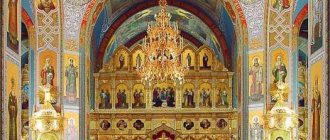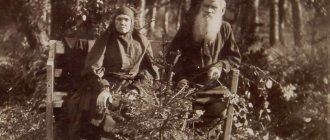Biography of Sergei Petrovich Botkin
Until the age of 15, Botkin was raised at home; in 1847 he entered the private boarding school of Ennes, where he studied for three years. At the boarding school he was considered one of the best students.
In August 1850, Botkin became a student at the Faculty of Medicine at Moscow University, graduating in 1855. Botkin was the only one in his class who passed the exam not for the title of doctor, but for the degree of doctor.
After graduating from the university, he, together with the sanitary detachment of surgeon Nikolai Pirogov, took part in the Crimean campaign, acting as a resident of the Simferopol military hospital. Working in a military hospital gave the doctor the necessary practical skills.
In December 1855, Botkin returned to Moscow and then went abroad to complete his education.
In 1856-1860, Sergei Botkin was on a business trip abroad. He visited Germany, Austria, Switzerland, England and France. During a business trip in Vienna, Botkin married the daughter of a Moscow official, Anastasia Krylova.
In 1860, Botkin moved to St. Petersburg, where he defended his doctoral dissertation “On the absorption of fat in the intestines” at the Medical-Surgical Academy.
In 1861 he was elected professor of the department of the academic therapeutic clinic.
In 1860-1861, Botkin was the first in Russia to create an experimental laboratory at his clinic, where he performed physical and chemical analyzes and studied the physiological and pharmacological effects of medicinal substances. He also studied questions of physiology and pathology of the body, artificially reproduced various pathological processes in animals (aortic aneurysm, nephritis, trophic skin disorders) in order to reveal their patterns. Research carried out in Botkin's laboratory laid the foundation for experimental pharmacology, therapy and pathology in Russian medicine.
Botkin closely connected his scientific activities with social ones.
In 1861, Sergei Botkin opened the first free outpatient clinic in the history of clinical treatment of patients at his clinic.
In 1862, he was subjected to a search and interrogation in connection with his visit to Alexander Herzen in London.
Since 1870, Botkin worked as an honorary physician. In 1871, he was entrusted with the treatment of Empress Maria Alexandrovna. In subsequent years, he accompanied the empress several times abroad and to the south of Russia, for which he had to stop lecturing at the academy.
In 1872, Botkin received the title of academician.
In the same year, in St. Petersburg, with his participation, women's medical courses were opened - the world's first higher medical school for women.
In 1875, his wife Anastasia Alexandrovna died. Botkin married a second time to Ekaterina Mordvinova, née Princess Obolenskaya.
In 1877, during the Russian-Turkish War, Botkin spent about seven months on the Balkan front, where he accompanied Emperor Alexander II. As a physician of Alexander II, he achieved preventive quinization of troops, fought to improve the nutrition of soldiers, made rounds of hospitals, and gave consultations.
In 1878, he was elected chairman of the Society of Russian Doctors in memory of Nikolai Ivanovich Pirogov and remained in this post until the end of his life. He achieved the construction of a free hospital by the society, which was opened in 1880 (Alexandrovskaya Barracks Hospital, now the S.P. Botkin Hospital). Botkin’s initiative was taken up, and free hospitals began to be built in other large cities of Russia with funds from medical societies.
Since 1881, Botkin, being a member of the St. Petersburg City Duma and deputy chairman of the Duma Commission of Public Health, laid the foundation for the organization of sanitary affairs in St. Petersburg, introduced the institute of sanitary doctors, laid the foundation for free home care, organized the institute of “Duma” doctors, created the institute of school sanitary doctors, Council of Chief Physicians of St. Petersburg Hospitals.
Botkin was the chairman of the government commission to develop measures to improve the sanitary condition of the country and reduce mortality in Russia (1886).
By the end of his career, he was an honorary member of 35 Russian medical scientific societies and nine foreign ones.
Botkin became the founder of scientific clinical medicine. He outlined his clinical and theoretical views on medical issues in three editions of the “Course of the Clinic of Internal Diseases” (1867, 1868, 1875) and in 35 lectures recorded and published by his students (“Clinical Lectures of Professor S.P. Botkin”, 3rd issue , 1885‑1891).
In his views, Botkin proceeded from an understanding of the organism as a whole, located in inextricable unity and connection with its environment. Botkin created a new direction in medicine, characterized by Ivan Pavlov as the direction of nervism. Botkin is responsible for a large number of outstanding discoveries in the field of medicine. He was the first to express the idea of the specificity of protein structure in various organs; was the first (1883) to point out that catarrhal jaundice is an infectious disease (currently this disease is called “Botkin’s disease”), developed the diagnosis and clinic of a prolapsed and “wandering” kidney.
Botkin published the “Archive of the Clinic of Internal Diseases of Professor S. P. Botkin” (1869‑1889) and the “Weekly Clinical Newspaper” (1881‑1889), renamed in 1890 the “Botkin Hospital Newspaper”. These publications published the scientific works of his students, among whom were Ivan Pavlov, Alexey Polotebnov, Vyacheslav Manassein and many other outstanding Russian doctors and scientists.
Among Botkin's students there are 85 doctors of science, including Alexander Nechaev, Mikhail Yanovsky, Nikolai Chistovich, Timofey Pavlov, Nikolai Simanovsky.
Botkin died of heart disease on December 24 (December 12 of the old style) 1889 in Menton (France) and was buried in St. Petersburg.
In two marriages he had 12 children. Two sons, Sergei and Evgeniy, inherited their father’s profession. After Botkin’s death, his son Evgeniy became a physician at court. Yevgeny Botkin was shot along with the royal family in 1918.
The material was prepared based on information from RIA Novosti and open sources
How a genius was almost declared mentally retarded
The Botkin family was not deprived of intelligence and ability. The head of the family, Pyotr Kononovich, had remarkable intelligence and the acumen of a businessman, so his tea trade was very successful. The children also showed great promise. The only one who stood out was Sergei, who was the eleventh child, and unlike other offspring, having reached the age of 9, he could not master literacy - even remember letters. Pathologies that hindered the boy’s development were not discovered, and the strict, demanding father did not see any other future for his narrow-minded son than to become a soldier.
However, fortunately for Seryozha (and many of his future patients), it turned out too late, but not too late, that the child suffers from severe astigmatism - a visual impairment that does not allow him to see clearly.
Cultivation abroad
- Arriving from the front in 1856, the young man went abroad to study European medicine and improve his knowledge.
- Initially, he arrived in Königsberg , where he hoped to get a place in a therapeutic clinic, but having learned there that the best teacher of medicine in Germany was Professor Rudolf Virchow, he moved to Würzburg.
- At the professor's lectures, the Russian doctor learned that Virchow puts the cell , considering it the cornerstone of medical science, and the main instrument in his work is the microscope.
- During this period, Botkin spent most of his time in the medical laboratory that was located at the institute. The young scientist completed his studies abroad in 1860.
Sergei Botkin in his youth
At war
- After graduating from a higher educational institution, Sergei Petrovich in 1855 left for Crimea , where at that time the Russian Empire was at war with a coalition of states that included Britain, France and Turkey.
- Arriving in Simferopol, Botkin was placed at the disposal of the famous Russian surgeon and scientist N.I. Pirogov , who appointed the young doctor as a resident (attending physician) of the hospital. He also often assisted surgeons at the operating table.
- During this period, Botkin realized that due to his myopia, he would not be able to become a good surgeon and focused on the postoperative treatment of wounded soldiers .
Gallery[ | ]
- Bust of S. P. Botkin by sculptor M. M. Antokolsky located in the Russian Museum in St. Petersburg
- USSR postage stamp, 1949: general practitioner S. P. Botkin, surgeon N. I. Pirogov and physiologist I. M. Sechenov
- Russian postage stamp, 2007
- Monument to Botkin in the park in front of the faculty therapy clinic
- The grave of Sergei Petrovich Botkin at the Novodevichy cemetery in St. Petersburg
- Bust of S. P. Botkin on the Alley of Scientists of the Medical Academy in Dnieper
Literature[ | ]
- Belogolovy N.A.S.P.
Botkin, his life and medical activity: Biogr. essay by Dr. N.A. White-headed: From the portrait. Botkin, engrav. in St. Petersburg K. Adtom. — St. Petersburg: type. Y. N. Erlich, 1892. - 79 p.: front. (portrait) - (Life of remarkable people. Biographical library of F. Pavlenkov) - Botkin Sergey Petrovich // List of civil ranks of the first three classes. Corrected on February 1st, 1889. - St. Petersburg: Printing house of the Government Senate, 1889. - pp. 268-269.
- Botkin, Sergey Petrovich // Encyclopedic Dictionary of Brockhaus and Efron: in 86 volumes (82 volumes and 4 additional). - St. Petersburg, 1890-1907.
- Botkin Sergey Petrovich // Great Soviet Encyclopedia: [in 30 volumes] / ed. A. M. Prokhorov - 3rd ed. - M.: Soviet Encyclopedia, 1970. T. 3: Bari - Bracelet. — P. 601. Please do not forget to format the quotation correctly: Poddubnaya A. S. Scientific contribution of S. P. Botkin to domestic medicine // Young scientist. - 2021. - No. 1. — pp. 136-139. — URL https://moluch.ru/archive/239/55239/ (date of access: 09/12/2019).
- Gaidar B.V., Lobzin Yu.V., Mazurov
V.I. and others. Sergei Petrovich Botkin on the 175th anniversary of his birth. / Ed. B.V. Gaidar. - St. Petersburg: Person and Health, 2007. - 128 p. - Kulbin N.
Botkin, Sergei Petrovich // Russian Biographical Dictionary: in 25 volumes. - SPb.-M., 1896-1918. - Lazebnik L. B., Vostrikov G. P., Drozdov V. N.
Doctor Sergei Petrovich Botkin. - M.: Anacharsis, 2003. - 73 p. - Lapteva L.P.
BOTKIN Sergey Petrovich //
A.Yu. Andreev, D.A. Tsygankov
Imperial Moscow University: 1755—1917: encyclopedic dictionary. - M.: Russian Political Encyclopedia (ROSSPEN), 2010. - P. 91-93. — ISBN 978-5-8243-1429-8. - Pechatkina G. A.
Faces of Taurida. Essays. Memories. Essay. Book one. - Simferopol: Business-Inform, 2006. - 208 p. - Nilov E. S.
Botkin. — Moscow: Mol. Guard, 1966. - 159 pp., 9 l. ill. — (Life of remarkable people. Series of biographies; Issue 2 (419)). - Sereda N. N., Kalyagin A. N., Onuchina E. V., Rozhansky A. A., Shcherbatykh E. V.
Sergei Petrovich Botkin and his therapeutic school (on the 175th anniversary of his birth) // Siberian Medical Journal . - Irkutsk, 2007. - No. 8. - P. 81-85. - Union of Philosophy and Medicine // Ed. N. N. Blokhina, A. N. Kalyagin. - Irkutsk: RIO GOU VPO IGMU Roszdrav, 2009. - 112 p. — P. 102—110.
- Chireikin V. Kh.
Sergei Petrovich Botkin. Life and work / Military medical. Military Museum M-va USSR. - Leningrad: [b.n.], 1952. - 47 p., 1 sheet. portrait
Content
- 1 Biography 1.1 Origin
- 1.2 Education
- 1.3 Start of medical practice
- 1.4 Internship in Europe, scientific and clinical activities
- 1.5 Medicine organizer
- 1.6 Notable patients
- 1.7 Study of the role of the Southern Coast of Crimea in spa treatment
- 1.8 Death and funeral
Deadly Cunning
Botkin was torn between medical science and helping patients. I didn’t rest, I slept only for a few hours. He supported himself with liters of coffee and the strongest cigars. It is not surprising that over the years he began to have heart problems. Attacks of suffocation became more and more frequent. They happened right at the academy, behind the teaching chair, while receiving patients. He, of course, suspected that it was a matter of the heart, but he pushed that thought away. If you recognize the presence of angina, you will have to radically change your lifestyle. But this was unacceptable for Botkin. After all, then research will be suspended, hundreds of people will be left without help. No, this is absolutely impossible. And Sergei Petrovich came up with such a trick. He consoled himself with the fact that weakness, faintness, shortness of breath and suffocation also occur with cholelithiasis. For which he treated himself. Of course, without success. In 1889, the disease became completely unbearable. Sergei Petrovich finally decided to go to a resort in France. There he died - from an attack of coronary artery disease, having lived only 57 years. This was the only incorrect diagnosis made by Dr. Botkin.
Let's read "Rockambole"
Botkin's methods discouraged his contemporaries. Here, for example, are the memories of one of the patients, the seriously ill wife of physiologist Ivan Pavlov: - Tell me, do you like milk? – I don’t like it at all and I don’t drink. - But we will still drink milk. You're a Southerner, and you're probably used to drinking at dinner. - Never. Not a bit. - However, we will drink. Do you play cards? - What do you mean, Sergei Petrovich, never in your life. - Well, let's play. Have you read Dumas or such a wonderful thing as Rocambole? - What do you think about me, Sergei Petrovich? After all, I recently finished my courses, and we are not used to being interested in such trifles. - We will read “Rocambole”. Three months later, Serafima Alexandrovna recovered. * Another time, a student who was tormented by abdominal pain came to Sergei Petrovich. The ice pack prescribed by other doctors did not help, it only made things worse. The examination took place at his home; daguerreotypes depicting the patient on a winter hunt hung on the walls. – Do you always wear an unbuttoned overcoat? – asked Botkin. “Yes,” he answered. - In any frost. “I still advise you to button up,” said Botkin. - Continue with quinine. The bubble is out. Most likely your illness is a cold. Back then, no one knew about the stomach flu. Botkin intuitively felt that the cold, which should help, in this particular case harms. The advice took action. * Telegraph operator Ivan Gorlov. Umbilical hernia. The skin under the bandage is not pressed, which means it is not worn. Why doesn't he wear it? Shy. Prescribe him bromine so he doesn't get nervous. * Housewife Natalya Sukhova. Suffering from acne. The liver should be cleansed. * Barber Konstantin Vasiliev. Weakness, drowsiness, decreased interest in life. I recently moved into a house opposite a 24-hour printing shop. Recipe: earplugs at night. * Botkin ordered another patient to change route. He went to the Kremlin every day through the Spasskaya Tower, and Sergei Petrovich ordered through the Trinity Tower. And the disease subsided. Fantastic? No. The fact is that the icon of the Savior Not Made by Hands, hanging over the Spassky Gate, had to take off the hat in any frost, which was the cause of the illness. How did Sergei Petrovich come up with this? The answer is simple - he was just a genius and loved people very much. Ivan Pavlov wrote: “His deep mind, not deluded by immediate success, looked for the keys to the great riddle: what is a sick person and how to help him... Sergei Petrovich was the best personification of the fruitful union of medicine and physiology, those two types of human activity that are before our eyes they are erecting a building of science about the human body and promising in the future to provide man with his best happiness – health and life.”
Mathematics lost - medicine gained
The delighted father identified the recent object of his disappointment as one of the best boarding houses in the capital. Vision correction not only opened up age-appropriate opportunities for the boy, but also helped to recognize in him the makings of a brilliant mathematician. Little Botkin was a master at counting.
Swearing on social networks is prohibited, but Urgant found a replacement for it
It’s normal to be capricious around your mother: why does this happen in children?
Why do they spray vegetables in supermarkets with water if this causes them to spoil quickly?
After graduating from the boarding house, he had to go to Moscow University. However, providence again intervened in the young man’s life - almost just before Sergei entered the university, a royal decree of Nicholas I was issued, introducing a restriction on the enrollment of students who did not have a noble origin. The only available faculty was the unpopular and least prestigious - medical.
So Sergei Botkin, the son of a rich merchant, but a man who did not belong to the aristocracy, by the will of fate began to study medicine.











